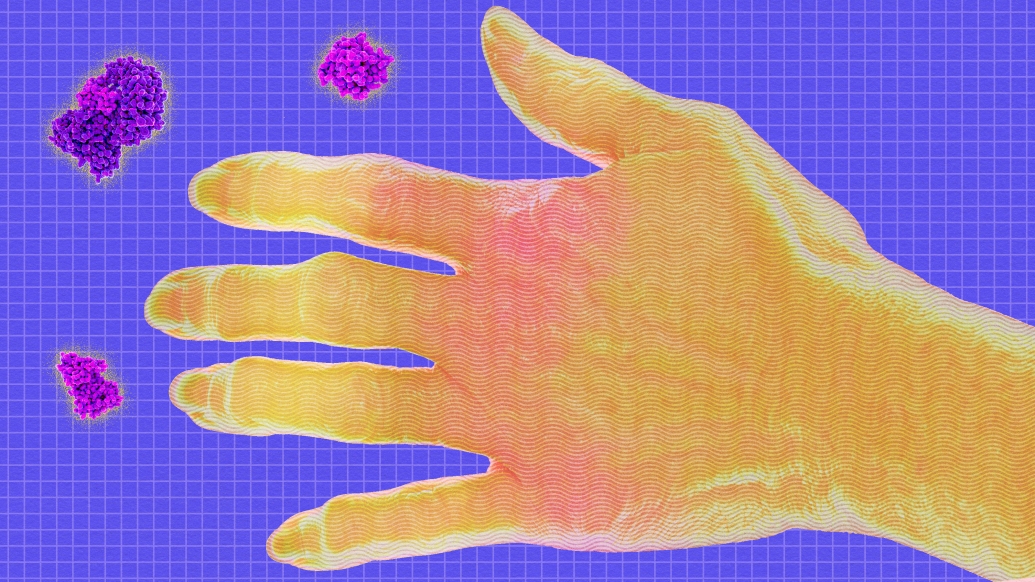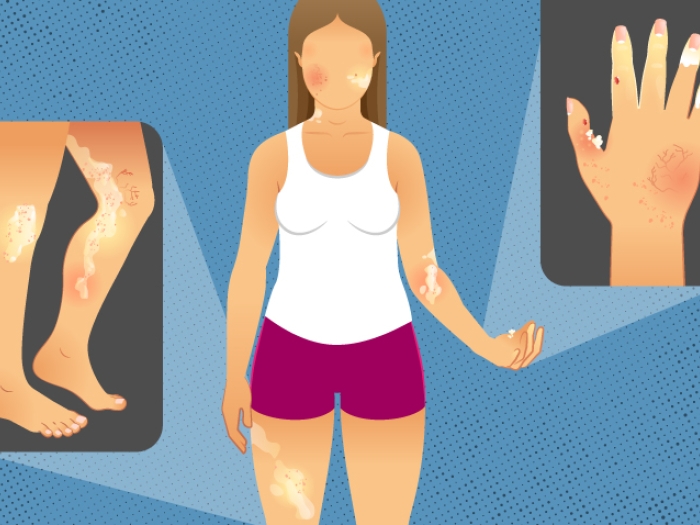Research shows antibody will prevent and reverse scar formation, presenting a promising therapeutic treatment strategy for patients
1:20 PM
Author |

Systemic sclerosis is an autoimmune disorder characterized by scarring of the skin and internal organs. There is a critical lack of effective treatments available.
The disease can severely impact quality of life, even posing a lethal threat in advanced cases, making research on the causes crucial to patient care.
A multicenter study led by John Varga, M.D., a professor of rheumatology at University of Michigan Health, has identified an enzyme contributing to systemic sclerosis. Varga and his team are in the beginning stages of developing an antibody to reduce scarring using this enzyme.
The research identifies that levels of the CD38 enzyme rise in correlation with aging, as well as in various autoimmune conditions, including systemic sclerosis.
CD38 is responsible for regulating NAD+, a molecule essential for healthy cell repair. Elevated CD38 is also associated with a decrease in NAD+ levels and resulting tissue fibrosis.
For the study, researchers examined the skin of mice treated with a substance that mimics systemic sclerosis to see if selectively blocking the breakdown of NAD+ via CD38 can prevent fibrotic conditions.
Using a humanized antibody called Ab68, results revealed an effective reduction in scarring without toxicity.
“Administering Ab68 led to a reduction in CD38 activity and an increase in NAD+ levels in muscles,” said Varga.
“The treated mice had improved skin condition with reduced thickness and collagen content, less weight loss and lung fibrosis, as well as a decrease in pro-fibrotic gene expression.”
The Ab68 antibody proved to reduce the number of cells experiencing senescence, a state where cells stop dividing and can further induce CD38. The antibody also increased the activity of sirtuins, a type of protein known to have anti-fibrotic effects.
Unlike existing methods, this approach avoids cell depletion and offers a more targeted and potentially effective treatment option.
“In particular, combining CD38 inhibition with NAD+ precursor administration presented optimal results. The treatment seemed to reduce the infiltration of inflammatory cells, potentially suppressing inflammation in various organs,” said Varga.
“Although further research is needed, CD38 is a good target to begin working on treatments to prevent skin and lung fibrosis.”
Moving forward, the study will be developed further to work toward clinical application in systemic sclerosis.
Additional authors: Bo Shi, Wenxia Wang and Li Kai, Northwestern Scleroderma Program, Department of Medicine, Northwestern University Feinberg School of Medicine; Asif Amin and John Varga, Department of Internal Medicine, University of Michigan Health; Pranjali Dalvi and Wim van Schooten, Teneobio Inc. Nicholas Lukacs, Department of Pathology, U-M Health; Paul Cheresh, Division of Pulmonary and Critical Care, Northwestern University Feinberg School of Medicine; Thais R. Peclat, Claudia C. Chini and Eduardo N. Chini, Department of Anesthesiology and Kogod Center on Aging, Mayo Clinic.
Funding: Funding was received by the NIH and Teneobio.
John Varga receives consulting fees from and owns equity shares in TeneoFour. Eduaurdo N. Chini receives consulting fees and owns equity shares in TeneoFour. The remaining authors have no conflicts of interest to report.
Citation: “Heavy-chain antibody targeting of CD38 NAD+ hydrolase ectoenzyme to prevent fibrosis in multiple organs,” National Library of Medicine: National Center for Biotechnology Information. DOI: 10.1038/s41598-023-49450-1
Sign up for Health Lab newsletters today. Get medical tips from top experts and learn about new scientific discoveries every week by subscribing to Health Lab’s two newsletters, Health & Wellness and Research & Innovation.
Sign up for the Health Lab Podcast: Add us on Spotify, Apple Podcasts or wherever you get you listen to your favorite shows.

Explore a variety of health care news & stories by visiting the Health Lab home page for more articles.

Department of Communication at Michigan Medicine

Want top health & research news weekly? Sign up for Health Lab’s newsletters today!





